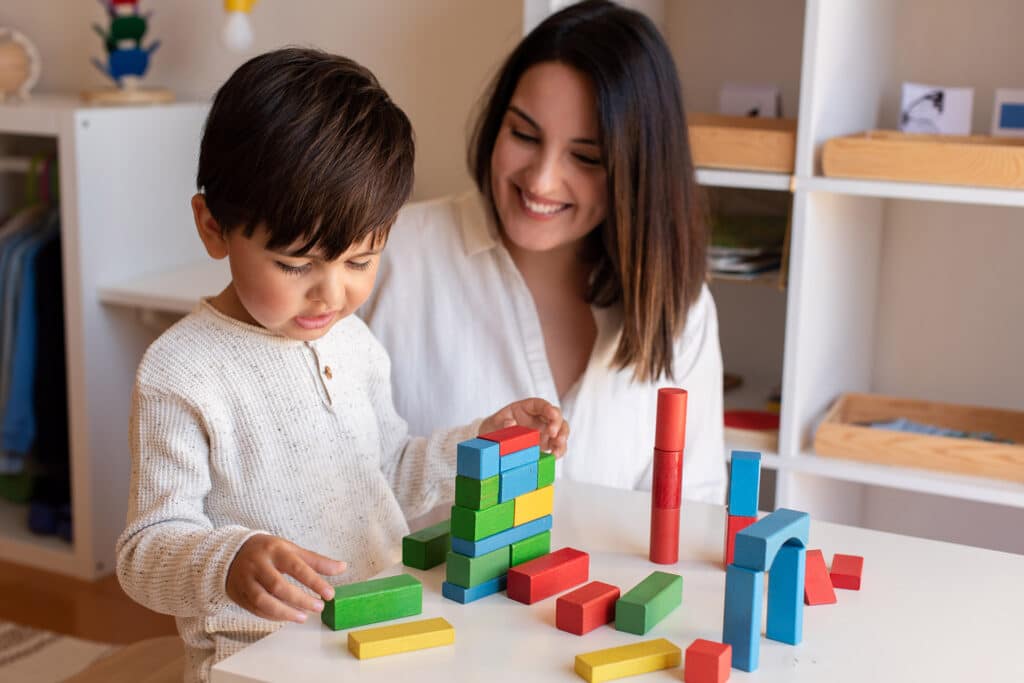Promoting Independence
HomeAchieve Beyond BlogPromoting Independence
By: Brittany Beaver, MA, BCBA, LBA, Clinical Supervisor

Independence is a valuable part of our daily routines and significantly enhances the quality of life. Even at young ages, a child should be encouraged to develop independent living skills . As a children’s motor and cognitive skills increase, their ability to complete these tasks also increases. By fostering independence in a child’s early years, parents can help make daily living skills become part of a routine rather than a difficult chore. To accomplish this goal, parents can encourage their children by creating opportunities, providing choices, and reinforcing behavior.
How to promote:
- Create opportunities by not completing an entire task for the child.
- Pause to allow time for the child to continue while completing the task.
- Give simple choices throughout the day.
- Do you want to wear the truck shirt or the shark shirt?
- Do you want to use a spoon or a fork to eat your corn?
Types of skills:
- Using a fork and spoon to eat.
- Dressing skills.
- Putting plate/bowl in the sink.
- Hanging up coat/jacket.
How to teach:
- Reinforce! Provide praise for completing tasks.
- Even if the task is not completed perfectly, provide praise for the attempt.
- If the child puts his/her shirt on backwards, first praise he/she completed the task independently.
- If the child drops his plate while taking it to the sink, provide praise for the effort.
- Provide prompts as needed.
- Help your child through the task if he/she unable to complete.
- For example, when putting on his/her shirt, you may put it over his/her head, then pause for him/her to place his/her arms through the holes. If he/she has difficulty finding the armholes, provide assistance and then see if he/she can push all the way through.
- Completing tasks should be enjoyable, not frustrating.
- Help your child through the task if he/she unable to complete.
Teaching tools:
- Visual schedules can be very helpful to remove yourself and allow independent completion of tasks.
- Create a list of pictures that indicate what needs to be done.
- Sticker charts
- Provide stars or stickers when tasks are completed.
- This will provide a sense of accomplishment and create motivation to repeat the task.
Date Posted:
February 12, 2019
Share this blog
Categories
Recent Blog Posts








